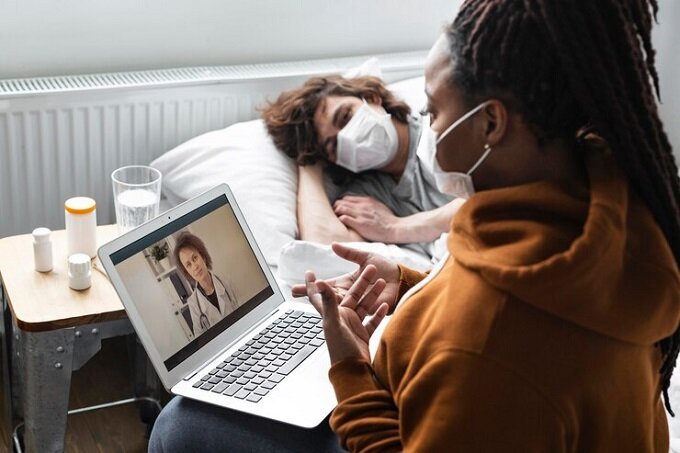
Where to Find Reliable Mental Health Resources Online
Have you ever felt overwhelmed, anxious, or just plain “off” and wished you had someone to talk to? You’re not alone. Millions of people struggle with mental health issues every day, but the good news is that help is out there – and it’s often just a click away.
In this guide, we’ll explore the vast landscape of online mental health resources, from national institutes to support groups and everything in between. We’ll show you where to find trustworthy information, how to connect with professionals, and how to access support when you need it most. Whether you’re dealing with depression, anxiety, substance abuse, or just looking to improve your overall mental wellness, we’ve got you covered.
So, grab a cup of tea, get comfy, and let’s dive into the world of online mental health resources together. Trust me, by the end of this article, you’ll have a toolkit full of reliable resources to help you or someone you care about navigate the sometimes tricky waters of mental health.
Key Takeaways
- Discover reputable national institutes and organizations offering comprehensive mental health information
- Learn about online support groups and communities for various mental health concerns
- Explore options for online therapy and self-help programs
- Find resources tailored to specific groups, including LGBTQIA+ youth and people of color
- Access crisis support and suicide prevention hotlines
Understanding the Importance of Reliable Mental Health Resources
Let’s face it: the internet can be a wild place. One minute you’re looking up symptoms for a headache, and the next, you’re convinced you’ve got some rare tropical disease. When it comes to mental health, it’s crucial to separate the wheat from the chaff. But why is finding reliable information so important?
Mental Health Awareness: More Than Just a Buzzword
You’ve probably heard the term “mental health awareness” thrown around a lot lately. But it’s more than just a trendy hashtag. Being aware of mental health issues helps us recognize when something’s not quite right – in ourselves or in others. It’s like having a mental health first aid kit in your back pocket.
Think about it: if you can spot the signs of depression or anxiety early on, you’re more likely to seek help before things spiral out of control. And that’s where reliable resources come in. They help you understand what’s normal, what’s not, and when it’s time to reach out for professional help.
Access to Information: Knowledge is Power
Remember the old saying, “Knowledge is power”? Well, it’s especially true when it comes to mental health. Tips for finding reliable mental health sources can be crucial. Having access to accurate, up-to-date information about mental health conditions, treatments, and support services can be a game-changer.
Imagine you’re dealing with panic attacks for the first time. You’re scared, confused, and don’t know what’s happening to you. Now, picture having a trustworthy resource that explains what panic attacks are, why they happen, and how to manage them. Suddenly, that scary experience becomes a little less overwhelming, right?
Confidentiality and Support: A Safe Space in the Digital World
Let’s be real: talking about mental health can be tough, but finding reliable mental health resources can make it easier. There’s still a lot of stigma out there, and opening up to friends or family isn’t always easy. That’s where confidential online resources come in clutch.
These resources provide a safe, judgment-free zone where you can explore your feelings, learn about different mental health issues, and even connect with others who are going through similar experiences. It’s like having a supportive friend available 24/7, right at your fingertips.
National Institutes and Organizations
Now that we’ve covered why reliable resources are so important, let’s dive into some of the heavy hitters in the world of mental health information. These national institutes and organizations are the cream of the crop when it comes to trustworthy mental health resources.
1. National Institute of Mental Health (NIMH): The Gold Standard
If mental health resources were a royal family, the National Institute of Mental Health (NIMH) would be the king. As part of the National Institutes of Health, NIMH is the lead federal agency for research on mental disorders. But don’t worry, they’re not all about stuffy research papers and jargon-filled reports.
Health Topics: A One-Stop Shop for Mental Health Info
NIMH’s website is a treasure trove of information on mental health topics. Whether you’re curious about anxiety disorders, depression, PTSD, or any other mental health condition, they’ve got you covered with tips for finding reliable mental health information. Their health topics section breaks down complex issues into easy-to-understand chunks, covering symptoms, causes, treatments, and more.
But here’s the best part: they don’t just tell you what’s wrong. They also provide information on how to get help, including tips for talking to your doctor and finding a mental health professional. It’s like having a roadmap to better mental health right at your fingertips.
Research and Studies: For the Science Nerds Among Us
If you’re the type who likes to dive deep into the nitty-gritty details, NIMH’s research section is your new best friend. They conduct and fund cutting-edge research on mental health conditions, and they share their findings with the public.
This isn’t just academic fluff, though. The insights from these studies can lead to better treatments, more effective therapies, and a deeper understanding of how our brains work. Plus, if you’re a bit of a science nerd (no judgment here!), it’s just plain fascinating stuff.
2. Substance Abuse and Mental Health Services Administration (SAMHSA): Help When You Need It Most
Next up on our tour of mental health heavyweights is the Substance Abuse and Mental Health Services Administration, or SAMHSA for short. These folks are all about providing practical, on-the-ground support for people dealing with mental health and substance abuse issues.
Treatment Finder: Your Personal Mental Health GPS
Ever felt lost trying to find the right mental health or substance abuse treatment? SAMHSA’s got your back with their free treatment finder tool. It’s like Google Maps for mental health services. Just plug in your location, and it’ll show you nearby treatment options.
But it doesn’t stop there. Nonprofit organizations provide valuable resources for mental health. The tool also lets you filter results based on the type of care you need, whether you’re looking for outpatient counseling, inpatient treatment, or something in between. It even includes info on payment options and special programs for specific groups like veterans or LGBTQIA+ individuals.
24/7 Helpline: A Lifeline in Times of Crisis
Life doesn’t always throw us curveballs during business hours, but finding reliable mental health resources can help anytime. That’s why SAMHSA operates a 24/7 helpline for people in crisis. Whether you’re dealing with thoughts of suicide, struggling with substance abuse, or just need someone to talk to, there’s always someone on the other end of the line.
And here’s a pro tip: Save this number in your phone right now – 1-800-662-HELP (4357). You never know when you or someone you care about might need it.
3. National Alliance on Mental Illness (NAMI): Power to the People
Last but definitely not least in our trio of national organizations is the National Alliance on Mental Illness, or NAMI. What sets NAMI apart is its grassroots approach. This organization was founded by family members of people with mental illness, and it’s all about education, support, and advocacy.
Education and Support: Knowledge is Power
NAMI offers a wide range of educational programs and support groups. They’ve got everything from family-to-family education programs to peer-led support groups. It’s like a university for mental health, but way more supportive and way less expensive.
One of their coolest offerings is NAMI Basics, a free education program for parents and caregivers of children and teens with mental health conditions. It’s like a crash course in “Mental Health Parenting 101.”
Resources and Services: Tools for Your Mental Health Toolbox
NAMI’s website is packed with resources to help you navigate the often confusing world of mental health. They offer mental health screening tools to help you understand what you might be experiencing, information on different treatment options, and even guidance on how to help a loved one who’s struggling.
But perhaps the most valuable thing NAMI offers is hope. Through their personal stories section, you can read about real people who have faced mental health challenges and come out the other side. It’s a powerful reminder that recovery is possible, and you’re not alone in your journey.
Online Therapy and Self-Help Programs
Alright, we’ve covered a lot of ground so far. But what if you’re looking for more direct, personalized support? That’s where online therapy and self-help programs come in. Let’s dive into these options and see how they might fit into your mental health journey.
Online Therapy: The Couch Comes to You
Remember when therapy meant lying on a couch in a stuffy office, talking to someone who nods and says “hmm” a lot? Well, times have changed, my friend. Welcome to the world of online therapy, where you can find credible mental health information online.
Online therapy platforms offer confidential and secure online sessions with licensed mental health professionals. It’s like traditional therapy, but you can do it from your couch (or bed, or favorite comfy chair – we don’t judge).
Here’s why online therapy is pretty awesome:
- Convenience: No need to travel or take time off work. You can have a session during your lunch break or after the kids go to bed, by visiting websites for mental health.
- Comfort: Some people find it easier to open up when they’re in their own space.
- Choice: With online platforms, you often have a wider range of therapists to choose from. You’re not limited to who’s available in your local area.
- Flexibility: Many platforms offer options for text, voice, or video chat. You can choose what works best for you.
- Affordability: Online therapy can often be more affordable than traditional in-person therapy.
Some popular online therapy platforms include BetterHelp, Talkspace, and ReGain (for couples therapy). But remember, it’s important to do your research and make sure any platform you use is reputable and employs licensed professionals.
Self-Help Programs: Be Your Own Therapist
Not ready for full-on therapy? Or maybe you want something to supplement your sessions? Self-help programs might be just what you’re looking for.
Self-help programs, particularly those based on cognitive behavioral therapy (CBT), can be incredibly effective tools for managing mental health. They provide structured support and guidance, helping you develop skills to manage your thoughts, feelings, and behaviors.
Here’s a quick rundown of what you might expect from a good self-help program: credible mental health information online, goal-setting, and finding reliable mental health resources.
- Education: Learn about your mental health condition and how it affects you by seeking help for mental illnesses.
- Skill-building: Develop coping strategies and techniques to manage symptoms.
- Goal-setting for behavioral health.: Work towards specific, achievable mental health goals.
- Progress tracking: Monitor your improvement over time.
- Exercises and activities: Practice what you’re learning in real-life situations.
Some popular self-help programs include MoodGym (for depression and anxiety), ThisWayUp (offers courses for various mental health issues), and Headspace (for mindfulness and meditation).
Remember, self-help programs aren’t a replacement for professional help if you’re dealing with severe mental health issues. But they can be a great tool for managing milder symptoms or for maintaining good mental health.
Conclusion
Whew! We’ve covered a lot of ground, haven’t we? From national institutes to online therapy, we’ve explored a wide range of mental health resources available at your fingertips. But remember, this is just the beginning of your journey to find credible mental health resources.
Remember, there’s no one-size-fits-all approach to mental health. What works for one person might not work for another, and that’s okay. The important thing is to keep trying until you find what works for you.
And here’s one last pro tip: save the National Suicide Prevention Lifeline number in your phone right now. Nonprofit organizations often recommend this. It’s 988. You can call or text this number 24/7 if you’re in crisis. It’s free, confidential, and could be a literal lifesaver.
Your mental health matters. You matter. And no matter what you’re going through, remember: you’re not alone. There’s a whole world of support out there, and it’s just a click or a call away, thanks to websites for mental health.
So, what’s your next step? Maybe it’s taking an online mental health screening. Or perhaps it’s reaching out to a support group. Whatever it is, I hope you’ll take it. Your future self will thank you for finding credible mental health resources.






